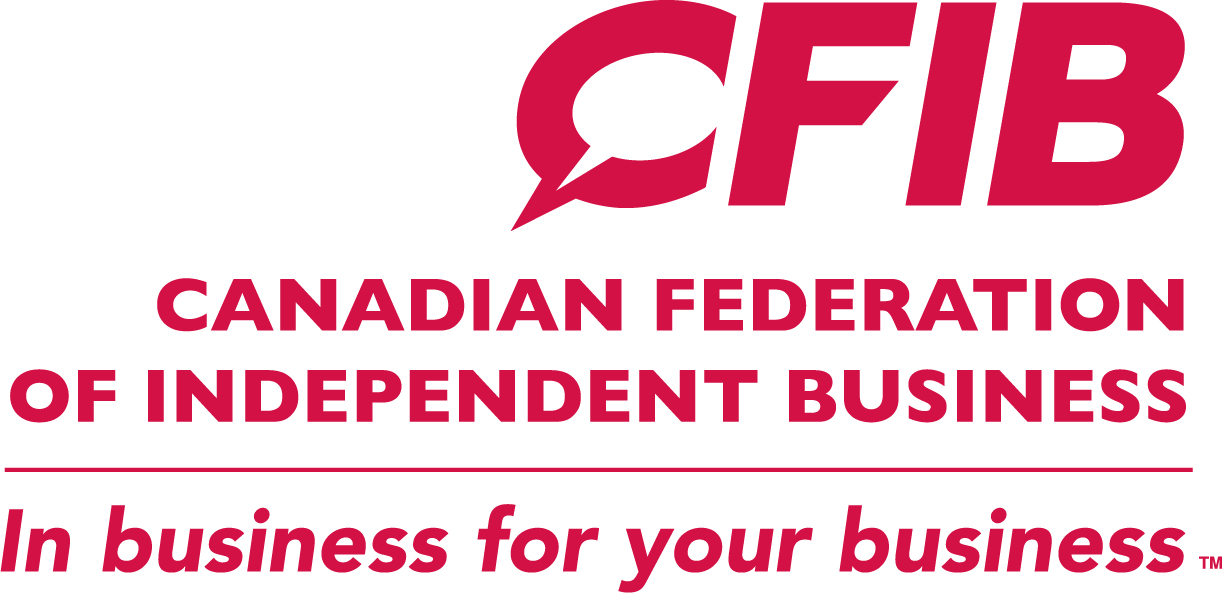One in 10 business owners switched banks at least once between 2019 and 2022, with TD Canada Trust and credit unions benefiting the most Français
TORONTO, March 16, 2023 /CNW/ - Between 2019 and 2022, one in 10 business owners switched banks at least once, finds a new report by the Canadian Federation of Independent Business (CFIB). TD Canada Trust (TD) and credit unions made the biggest gains during that period, increasing their overall market share by 0.7 and 0.6 percentage points, respectively.
The top three reasons for switching banks include poor customer service (52%), issues with accessing financing (44%), and fees/pricing (39%). Among the big five banks, small business customers were most likely to switch banks due to poor customer service. For smaller financial institutions, the most common reason for switching was due to issues with accessing financing.
"Small business owners often feel like the service they receive from larger banks is not fully up to the standards they expect, so it is not surprising that they choose to switch their banks," said Corinne Pohlmann, Senior Vice-President of National Affairs at CFIB. "If the big banks want to retain their small business clients, their primary focus should be on improving their customer service."
Royal Bank of Canada (RBC) retained the top spot in 2022 as the bank with the greatest small business market share (19%), although it doesn't lead in any regional markets. Scotiabank maintained its second place with 17% of the market. TD came in third with 16% and was the only one of the big five banks to gain real ground since the last CFIB banking report in 2019.
Among other financial institutions with a wide national footprint, Bank of Montreal (BMO) maintained a similar market share to 2019, sitting at 9.4% overall in 2022, but has generally been on the decline since 1997. The Canadian Imperial Bank of Commerce (CIBC) has also been on a significant decline, going from more than 20% market share in 1982 to less than 9% in 2022. Credit unions have more than tripled their market share since 1982 and held 13% of the market in 2022.
"Small business clients often have unique and specialized banking needs. In addition to day-to-day banking, business owners also need a variety of products and services such as business advice, investments, succession planning and retirement savings," said CFIB senior research analyst and author of the report Taylor Matchett. "Given how important financial partnerships are to business success and the different banking options in the market, banks across Canada should consider how to best serve small businesses if they want to remain competitive and keep their clients."
Market share by region and size
Each major region of the country has a different market leader. Regional financial institutions, such as Desjardins in Quebec or ATB Financial in Alberta, continue to rank first in those provinces, beating out the bigger banks.
Small firms also tend to favour different banks based on their business size. Among micro-businesses with less than five employees, Scotiabank is the most popular financial institution, with 21% market share. RBC is the favourite bank for small and mid-sized businesses.
"It is essential for small business owners to have access to affordable banking and financing needs. If banks develop an offer that is more accessible and goes beyond day-to-day banking needs, small firms will have a greater chance to succeed and contribute to the overall economic health of the country," concluded Pohlmann.
Read the full Financing Main Street: SME Market Share Among Major Banks report here. This is the first in CFIB's series of banking reports that will be released over the next few months. The next two reports will focus on small business financing trends and the customer service provided by banks.
The Canadian Federation of Independent Business (CFIB) is Canada's largest association of small and medium-sized businesses with 97,000 members across every industry and region. CFIB is dedicated to increasing business owners' chances of success by driving policy change at all levels of government, providing expert advice and tools, and negotiating exclusive savings. Learn more at cfib.ca.
SOURCE Canadian Federation of Independent Business

For media enquiries or interviews, please contact: Dariya Baiguzhiyeva, CFIB, 647-464-2814, [email protected]

Share this article